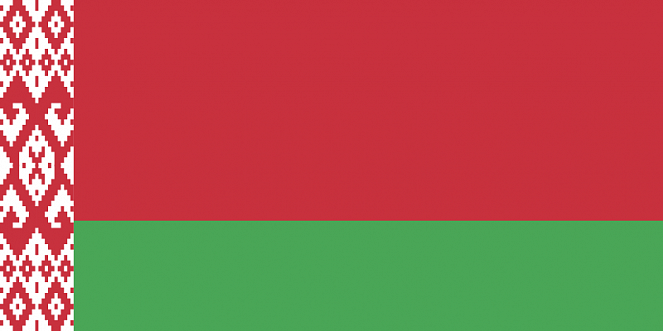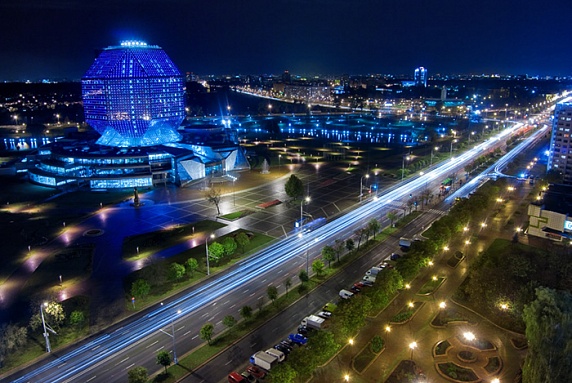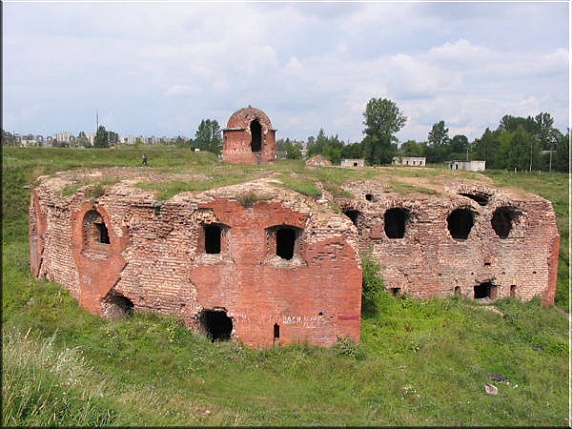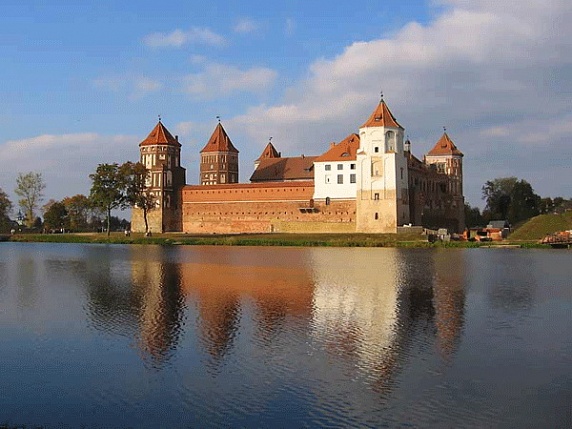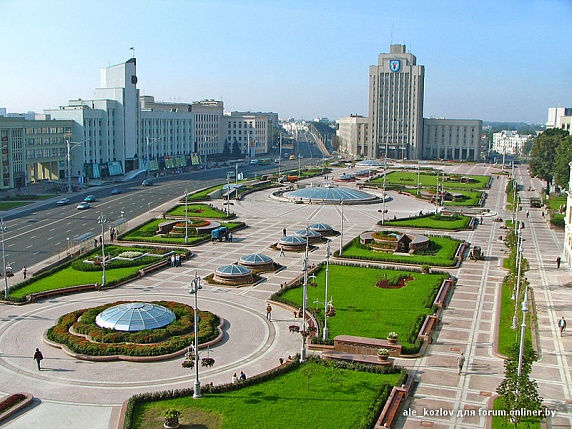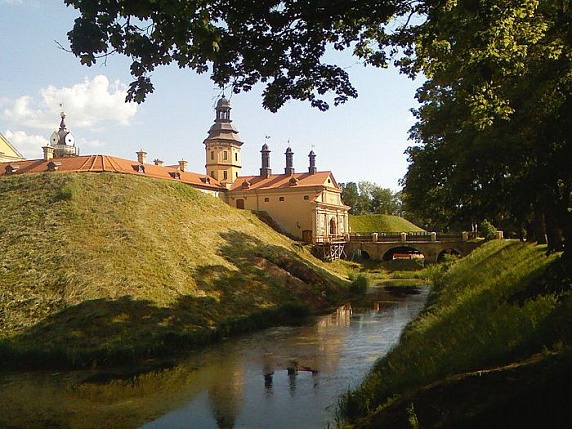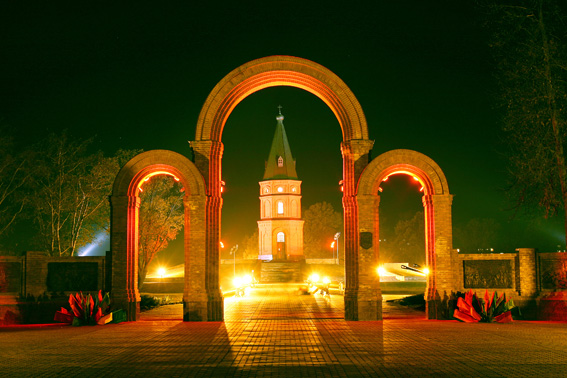 the Republic of Belarus
the Republic of Belarus
Foreign Minister Sergey Lavrov’s remarks during a meeting with participants of the Dialogue for the Future scientific and educational programme, Moscow, November 25, 2024
Friends,
We are delighted to see the tradition spearheaded by the Alexander Gorchakov Public Diplomacy Fund continue. This tradition is about maintaining good relations with many of your countries, relations that have been in existence for many years and even centuries.
With the global situation growing increasingly tense for reasons you are well aware of, I consider it more important than ever for the young people from all continents to show interest in life even under challenging circumstances. Personal communication cannot be replaced by anything else. There are, indeed, social media and gadgets, and you can stay in the loop without ever having to leave your home. However, the fact that you are taking part in this programme, and this programme is gaining traction, goes to show time and time again that in-person communication remains the undeniably indispensable human value to be used to promote personal growth and to help individuals avoid isolating themselves in diverse modern technologies.
First, I would like to thank our colleagues from the Alexander Gorchakov Public Diplomacy Fund for their consistent efforts in carrying out this work and expanding its scope. Second, it is gratifying to know that this initiative is gaining success not only among our neighbours, where we have many friends, comrades, and family ties, but also in the countries that lie farther from the Russian Federation, such as Africa and the Americas.
We are keen on ensuring that young people know the truth. We have always emphasised our push to present an objective view of Russia and to promote an accurate perception of our country. I’m strongly opposed to the idea of us saying that we aim to create a positive image of Russia. No one is without fault. However, objectivity is now more necessary than ever for everyone who contemplates the future of humanity, their own country, and their destiny.
Today, we planned to discuss the activities of the SCO, BRICS, and other multilateral entities which have been getting stronger and are widely engaged in addressing matters of security and stability.
I’m confident that during your visits to Russia, you have familiarised yourselves with the most recent speeches by President Vladimir Putin, in which he outlined our assessment of the current phase of development. It is an objective evaluation.
A multipolar world order is taking shape. Statistics is a stern discipline. For several years now, it has been telling us that the aggregate GDP of BRICS countries has been significantly outpacing the aggregate numbers of the G7 in terms of purchasing power parity, even more so after the group has recently expanded. This gap continues to widen. The remarkable interest in BRICS which we observed during the recent summit in Kazan speaks volumes.
The economic process indicates that the engine of growth is shifting away from the historical West. Recently, Hungarian Prime Minister Viktor Orban noted that 500 years of dominance are coming to an end, because objective economic indicators are placing the countries of Eurasia, the Asia-Pacific region, Latin America, and the Middle East in leadership positions. The vast potential of Africa has so far remained untapped.
We have already held two Russia-Africa summits, with the second one taking place in St Petersburg in 2023. Following the decisions made at that summit, two weeks ago in Sochi, at the Sirius centre, I had the honour of hosting the First Ministerial Conference of the Russia-Africa Partnership Forum. Increasingly, calls are coming from Africa to fully utilise what it has been given by God and to overcome the remnants of colonial exploitation, which, unfortunately, still persist.
I cited the example of the global coffee market, which is valued at around 450 billion euros. However, only about 25 billion euros of that remains in Africa, as the raw beans are harvested and then shipped off for processing in developed countries. This has become a pressing issue. Increasingly, African nations are declaring their desire to process their own products — whether it’s what they grow, harvest, or extract from the earth. They no longer want to be mere suppliers of raw materials.
These trends will only intensify and must be recognised. African, Latin American, and Asian countries are calling for justice. When Western nations suggest that others remain in their system of globalisation because they had created it, because the dollar is seen as a universal asset, property is sacred, the presumption of innocence is in place and fair competition supposedly reigns – those times have long ago sunk into oblivion. These were the arguments used by the West to draw others into its globalisation system established after World War II, through the Bretton Woods institutions and the WTO. For many years, within BRICS and the G20, we have witnessed calls for a fair reform of the voting quotas in the International Monetary Fund. Despite lacking any solid economic or financial rationale, the United States maintains a blocking package of 17.4 percent of the votes in the IMF, thereby artificially preventing a fair redistribution of influence that would reflect the true economic weight of the Global South countries in the governance of the Bretton Woods institutions. This should form the basis for fair competition rather than an artificial retention of reforms that can undermine someone’s influence. This is becoming increasingly artificial. Once the US realised it was starting to lose in global competition, it resorted to dishonest tactics like trade wars and protectionism. The WTO’s dispute settlement mechanism was flooded with claims that would have mostly been ruled in favour of those the US sought to restrict in free competition. The US simply blocked its operations. This is not a market, but rather a form of dictate and hegemony. This is something everyone recognises.
Naturally, there is a competitive process for securing the legitimate positions of all countries and regions within the global economy. This is also evident on the vast, rapidly growing, and densely populated Eurasian continent. It is in Eurasia, especially within the Asia-Pacific region, that the key processes shaping the future of the world economy are taking place. Consequently, as soon as opportunities for accelerated growth emerge, security challenges also arise in these regions.
NATO was originally created to defend the territories of its member states. They promised us not to expand the alliance, yet they did. In 1997, we signed a special document. We saw NATO expanding, but we sought to minimise the damage to ourselves.
We signed an agreement with NATO to the effect that they would not deploy permanent military forces on the territories of their new members, but they continued to do so, and these deployments are now at our borders.
NATO declared itself a defensive alliance. However, it now claims that threats to it emanate from regions like the Indo-Pacific, the South China Sea, the Taiwan Strait, and other areas associated with China or parts of Russia (a significant portion of our territory is located there).
NATO is creating mini-blocs, such as one that comprises the US, Japan, and South Korea, incorporating nuclear planning elements into its military projects with these countries. It has also established AUKUS comprising the US, Australia, and the UK.
The nuclear submarine project involves technologies that should be subject to IAEA controls. The Americans are forming the Indo-Pacific Quad (Australia, New Zealand, Japan, and South Korea) and engaging in activities that disrupt Eurasian forms of cooperation, such as the security and cooperation architecture that has been built over decades around ASEAN. The Westerners are yanking out individual ASEAN members, urging them to join their small-sized bloc formats, and implementing NATO infrastructure in such formats.
In other words, the North Atlantic Alliance has effectively declared itself a global force, claiming that threats to its security now exist almost everywhere, including by all means across the entirety of Eurasia and the seas surrounding it. That is why they allegedly must be present here.
Everyone is clear that this was all made public in an attempt to establish control over economic processes. At the same time, the development of competitors is suppressed through imposing illegal sanctions. Currently, Russia holds the record for the number of sanctions imposed on it. More and more sanctions are also being imposed on other countries, such as Iran and North Korea. Increasingly, China is facing severe restrictions on technology transfers that previously took place smoothly and without hassle.
This is a battle over resources and ultimately over influence. The Americans have long ago decided and openly declared that their goal was to ensure a world order where no one even comes close to competing with America. That is exactly what we are witnessing now.
For ten long years that followed the coup in Ukraine, we warned against using Ukraine in these games aimed at eliminating competitors. They saw Russia, a major nuclear power, as a competitor. Yet they unleashed a war and brought to power a regime that outlawed education in Russian and the Russian language in media and culture, and even daily life.
In Kiev, for instance, in addition to the laws passed by the Verkhovnaya Rada, resolutions by the city mayor, Vitaly Klitschko, prohibit any use of the Russian language. For example, if you enter a pharmacy and ask for a medicine in Russian, you could be denied service or even get reported to a special agency. They even have such thing as a language inspection.
It’s no coincidence that US Senator Lindsey Graham, in his blunt honesty (he’s not a diplomat and doesn’t hide his intentions) stated that the US must ensure Russia’s defeat in Ukraine, because that country holds many rare earth metal reserves, including lithium. He told the same thing to Vladimir Zelensky during a recent visit, adding that the US needed these resources. He even said that the US would help Ukraine in exchange for taking all of this as payment. By the way, US companies have already bought up most of Ukraine’s most fertile lands. They keep talking about the Black Sea Initiative and the need to feed Africa. However, over 50 percent of grain exported under this initiative went to the European Union rather than Africa. US corporations profited nicely from this grain deal and aim to do the same with the rest of our neighbour’s resources.
NATO is a Euro-Atlantic organisation. The European Union was supposedly created by Europeans for Europeans, yet a couple of years ago it signed an agreement with the Alliance, essentially subordinating itself to NATO in matters of military planning. It committed to allowing NATO to move its tanks or armoured vehicles freely across European roads, including those of EU members that are not NATO members. NATO informed them that their roads weren’t good enough, and told them to reinforce them in order to be able to accommodate NATO equipment. Essentially, the EU is also part of the Euro-Atlantic security concept.
The OSCE was an attempt made with good intentions in mind. It began with the Helsinki meeting in 1975. In the 1990s, after the Soviet Union dissolved, the organisation was restructured. It appeared (or so we were told) that we had reached the “end of history” and there will be no more ideology on planet Earth other than liberal democracy. Everyone would be brothers in a civilised family of nations and so on. However, the West used a number of stunts to ultimately “privatise” the OSCE. Throughout its existence, with rare exceptions, all key leadership positions (Secretary General, head of the Office for Democratic Institutions and Human Rights, head of the division for national minorities, and head of the freedom of the media division) were taken by NATO officials or individuals who did everything as told by their “senior comrades.” Russia found it extremely difficult to place even a single representative in the OSCE Conflict Prevention Centre, which oversees operations on the ground.
The OSCE peacekeeping efforts were overseen by this centre. We did not have our people there. When we were compelled to launch the special military operation, the OSCE mission in Ukraine wrapped up its activities. We discovered vast amounts of evidence that some of the OSCE mission members in Ukraine, despite their neutral status, had been using illegal ways to obtain information and provide it to the Kiev regime, which continued bombing peaceful communities in Donbass, which refused to recognise the unconstitutional coup. The Minsk agreements were signed afterwards, but the OSCE helped sabotage them.
Last year, Germany and France openly admitted they never planned to act on the Minsk agreements, but used them to buy some time for Ukraine. Everyone was clear then that the inability of our Western counterparts to honour agreements didn’t go anywhere.
We are now focused on building a material foundation for Eurasia. An agreement between the EAEU, the SCO, and ASEAN is already in place. We are inviting the GCC or any other Eurasian entity to join the dialogue in order to develop the best and effective logistical routes, payment platforms, and supply chains which will be independent of those who once touted the US dollar as a global asset, only to weaponise when they found it convenient. Even Donald Trump, in one of his campaign speeches, criticised the Democratic administration for killing America’s might by undermining trust in the US dollar by weaponising it against specific countries, regions, and competitors depending on the whims of a particular White House administration.
The connections between these Eurasian entities will form and are already forming what we call the Greater Eurasian Partnership that encompasses the economy, finance, and logistics.
Projects like the North-South International Transport Corridor linking the Baltic Sea to the Persian Gulf and the Indian Ocean without delays or obstacles are already underway. Agreements are in place to establish stable routes between Indian ports and Vladivostok.
The Northern Sea Route is receiving significant interest, not just from Arctic countries, but also from strategic partners like China and India which are joining these projects. This will create a new configuration for the international transport network with global-scale consequences and significant cost savings for global trade.
Given that NATO and the United States (with and without the Alliance) are strongly promoting their interests in this region, based solely on their push to continue to live off the backs of others and not to let anyone to “sail freely”, are trying to create bloc-based security structures here. In this connection, speaking at the Foreign Ministry on June 14, President Vladimir Putin conveyed, among other things, an idea of forming Eurasian rather than Euro-Atlantic security architecture, because Washington eventually tends to bring to heel all Euro-Atlantic models. We see the Eurasian model as open to all countries and associations of the entire continent, including its western part.
For the second straight year, our Belarusian friends are hosting the International Conference on Eurasian Security, which is attended by countries that are part of the “western orbit” of influence. For example, representatives of Hungary, Slovakia, and Serbia attended it, even though the latter is not a member of the European Union or NATO, and is upholding its sovereignty.
This is why we want to unobtrusively develop recommendations on how to form a security architecture that is open to all countries of the continent, and involve in this work officials (ministers, deputy ministers, and heads of relevant agencies) and members of the academic circles, experts, and researchers. This work will continue. Our goal is to develop a Eurasian Charter of Diversity and Multipolarity.
